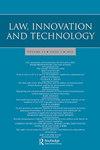数据作为一种经济商品,数据作为一种公共资源,以及数据治理
Q1 Social Sciences
引用次数: 0
摘要
本文对数据作为一种经济商品的经济学文献进行了系统和批判性的回顾,并为数据治理提供了经验教训。我们得出的结论是,在治理工作中,将数据作为一种经济利益来关注,只会导致更多的数据生产,而无法实现与文献和政策中经常声称的相反的其他社会目标。数据治理通常是转移人们对其他数字问题注意力的障眼法。数字社会的治理不能完全依赖于以数据为中心的经济模式。我们回顾了有关数据公地的文献和潜在的经验和政治主张。虽然公共思维在从生态学的角度定义数字问题时很有用,但它有重要的局限性。我们提出了一种治理数字社会的政治生态方法,通过对治理问题的生态思考和对构建问题和绘制其生态构成的政治性质的认识来定义。本文章由计算机程序翻译,如有差异,请以英文原文为准。
Data as an economic good, data as a commons, and data governance
This paper provides a systematic and critical review of the economics literature on data as an economic good and draws lessons for data governance. We conclude that focusing on data as an economic good in governance efforts is hardwired to only result in more data production and cannot deliver other societal goals contrary to what is often claimed in the literature and policy. Data governance is often a red herring which distracts from other digital problems. The governance of digital society cannot rely exclusively on data-centric economic models. We review the literatures and the underlying empirical and political claims concerning data commons. While commons thinking is useful to frame digital problems in terms of ecologies, it has important limitations. We propose a political-ecological approach to governing the digital society, defined by ecological thinking about governance problems and the awareness of the political nature of framing the problems and mapping their ecological makeup.
求助全文
通过发布文献求助,成功后即可免费获取论文全文。
去求助
来源期刊

Law, Innovation and Technology
Social Sciences-Law
CiteScore
4.50
自引率
0.00%
发文量
18
期刊介绍:
Stem cell research, cloning, GMOs ... How do regulations affect such emerging technologies? What impact do new technologies have on law? And can we rely on technology itself as a regulatory tool? The meeting of law and technology is rapidly becoming an increasingly significant (and controversial) topic. Law, Innovation and Technology is, however, the only journal to engage fully with it, setting an innovative and distinctive agenda for lawyers, ethicists and policy makers. Spanning ICTs, biotechnologies, nanotechnologies, neurotechnologies, robotics and AI, it offers a unique forum for the highest level of reflection on this essential area.
 求助内容:
求助内容: 应助结果提醒方式:
应助结果提醒方式:


